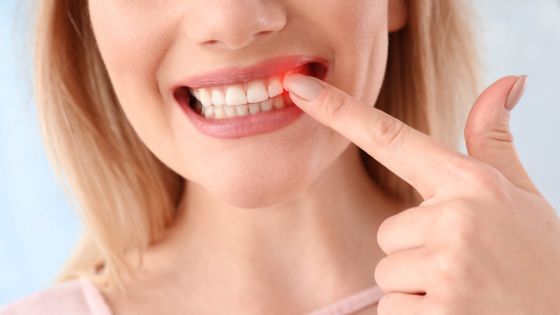Bruised Gums: Causes, Treatment, and Prevention Tips

Bruised gums can occur due to various factors such as accidents, dental issues, or certain medical conditions.
Common symptoms include discoloration, pain, and swelling. Home remedies like applying a cold compress and practicing oral hygiene can relieve pain.
Professional treatment options are available, including dentist examinations and dental procedures for healing.
It is essential to seek medical attention if symptoms persist or worsen. Regular dental check-ups and good oral health habits are essential for gum health. Remember to consult a healthcare provider for severe or concerning symptoms.
Understanding Bruised Gums: Causes and Symptoms
Bruised gums can be a concerning oral health issue, often accompanied by discoloration, pain, and other symptoms.
Understanding the causes and symptoms is essential to determine appropriate treatment and prevent further complications.
Causes
1. Trauma and Accidents:
- Injuries from falls or facial trauma can result in bruised gums.
- Accidental biting on hard objects or sharp foods can lead to gum bruising.
2. Dental Issues and Procedures:
- Improper use of dental tools, excessive flossing, or brushing vigorously can cause gum bruising.
- Ill-fitting dental appliances such as braces or dentures can potentially bruise the gums.
3. Medical Conditions and Medications:
- Certain medical conditions like thrombocytopenia can make the gums more susceptible to bruising and bleeding.
- Some medications, like blood thinners, can contribute to gum bruising.
Symptoms
1. Discoloration and Dark Spots:
- Bruised gums may appear dark or discolored, ranging from purple or blue to black.
2. Pain and Sensitivity:
- Bruised gums can be sensitive to touch and cause discomfort or pain, especially when eating or brushing.
3. Swelling and Bleeding:
- Swelling around the affected area of the gums is common with bruising.
- In some cases, bruised gums may bleed or have blood spots.
If you experience severe or persistent symptoms or notice complications, it's essential to seek professional dental care.
Understanding the causes and symptoms of bruised gums can help you take appropriate measures, maintain good oral hygiene, and prevent further issues.
Treating Bruised Gums: Home Remedies and Professional Options
When it comes to treating bruised gums, there are various options available. Depending on the severity and cause of the bruising, you can try self-care remedies at home or seek professional treatments from a dentist. Here we explore both alternatives to help you find the most suitable approach.
Self-care at Home for Bruised Gums
Self-care remedies can provide relief and promote healing for bruised gums. Here are some effective home remedies you can try:
- Applying Cold Compress and Rinsing: Place a cold compress or ice pack on the affected area for a few minutes to reduce swelling and pain. Rinse your mouth with warm saltwater to clean the bruised gums gently.
- Over-the-Counter Pain Relief: Non-prescription pain relievers such as ibuprofen or acetaminophen can help manage the discomfort associated with bruised gums. Follow the recommended dosage instructions.
- Proper Oral Hygiene Practices: Good oral hygiene is essential for gum health. Gentle brushing with a soft-bristle toothbrush and regular flossing can keep the affected area clean and aid healing.
Professional Treatments for Bruised Gums
If self-care remedies don't provide sufficient relief or if the bruised gums persist, it's advisable to seek professional treatments from a dentist. Here are some standard professional options:
- Dentist's Examination and Diagnosis: A dentist will evaluate the severity of your bruised gums, identify the underlying cause, and determine the appropriate treatment plan. They may also perform additional tests to rule out other dental or medical conditions.
- Dental Procedures for Healing: Depending on the extent of the bruising, your dentist may recommend specific procedures such as professional gum massage, laser therapy, or medication application to promote healing and alleviate symptoms.
- Long-term Management and Prevention: Your dentist can guide long-term management and preventive measures to avoid further bruising. This may include lifestyle changes, recommendations for nutrition and hydration, and regular dental check-ups to maintain gum health.
Remember, if your symptoms worsen or persist despite home remedies, it's essential to consult a dental professional. They can provide personalized advice and treatment options to address your specific situation.
When to Seek Medical Attention: Warning Signs and Precautions
Signs to Consult a Dentist or Healthcare Provider
If you experience bruised gums that are severe or persistent, it is essential to consult a dentist or healthcare provider for further evaluation. Here are some warning signs that indicate the need for professional attention:
- Severe and persistent symptoms: If your bruised gums show no signs of improvement or become increasingly painful over time, it is essential to seek medical advice.
- Complications and other concerns: If you notice additional symptoms such as excessive bleeding, pus formation, or the presence of a foul odor, it may indicate an infection or an underlying dental issue that requires prompt attention.
Precautions and Tips for Promoting Gum Health
To maintain healthy gums and prevent issues like bruising, there are several precautions and tips you can follow:
- Proper brushing and flossing techniques: Brush your teeth at least twice daily using a soft-bristled toothbrush and fluoride toothpaste. Floss daily to remove plaque and debris between the teeth and the gum line.
- Balanced diet and hydration: Include a variety of fruits, vegetables, whole grains, and lean proteins in your diet. Limit sugary and acidic foods and beverages. Drink plenty of water throughout the day to keep your mouth hydrated and promote saliva production.
- Regular dental check-ups and cleanings: Visit your dentist for regular check-ups and professional cleanings to detect any early signs of gum problems and receive necessary treatments.
Taking these precautions and following these tips can help maintain gum health and reduce the risk of complications. Remember to consult a healthcare provider if you experience severe or concerning symptoms related to bruised gums.
DISCLAIMER: buildyourbody.org does not provide medical advice, examination, or diagnosis.
Medically reviewed and approved by Nataniel Josue M D.
